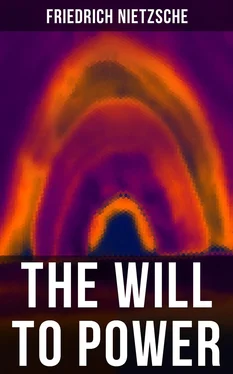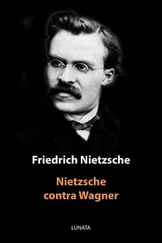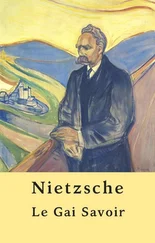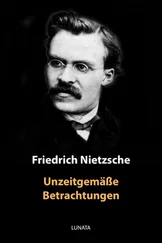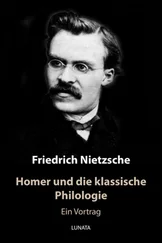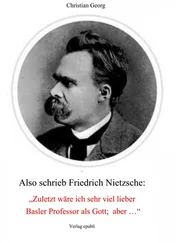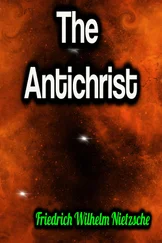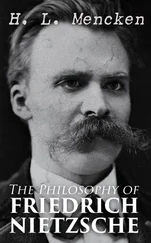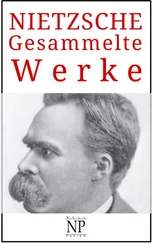Christs example ; He does not withstand those who ill-treat Him; He does not defend Himself; He does more, He "offers the left cheek" (to the demand: "Tell us whether thou be the Christ?" He replies: "Hereafter shall ye see the Son of man sitting on the right hand of power, and coming in the clouds of heaven"). He forbids His disciples to defend Him; He calls attention to the fact that He could get help if He wished to, but will not.
Christianity also means the abolition of society, it prizes everything that society despises, its very growth takes place among the outcasts, the condemned, and the leprous of all kinds, as also among "publicans," "sinners," prostitutes, and the most foolish of men (the "fisher folk "); it despises the rich, the scholarly, the noble, the virtuous, and the "punctilious." ...
208.
The war against the noble and the powerful, as it is waged in the New Testament, is reminiscent of Reynard the Fox and his methods: but plus the Christian unction and the more absolute refusal to recognise one's own craftiness.
209.
The Gospel is the announcement that the road to happiness lies open for the lowly and the poor—that all one has to do is to emancipate one's self from all institutions, traditions, and the tutelage of the higher classes. Thus Christianity is no more than the typical teaching of Socialists.
Property, acquisitions, mother-country, status and rank, tribunals, the police, the State, the Church, Education, Art, militarism: all these are so many obstacles in the way of happiness, so many mistakes, snares, and devil's artifices, on which the Gospel passes sentence—all this is typical of socialistic doctrines.
Behind all this there is the outburst, the explosion, of a concentrated loathing of the "masters,"—the instinct which discerns the happiness of freedom after such long oppression.... (Mostly a symptom of the fact that the inferior classes have been treated too humanely, that their tongues already taste a joy which is forbidden them.... It is not hunger that provokes revolutions, but the fact that the mob have contracted an appetite en mangeant.... )
210.
Let the New Testament only be read as a book of seduction : in it virtue is appropriated, with the idea that public opinion is best won with it,—and as a matter of fact it is a very modest kind of virtue, which recognises only the ideal gregarious animal and nothing more (including, of course, the herdsmen): a puny, soft, benevolent, helpful, and gushingly-satisfied kind of virtue which to the outside world is quite devoid of pretensions,—and which separates the "world" entirely from itself. The crassest arrogance which fancies that the destiny of man turns around it, and it alone, and that on the one side the community of believers represents what is right, and on the other the world represents what is false and eternally to be reproved and rejected. The most imbecile hatred of all things in power, which, however, never goes so far as to touch these things. A kind of inner detachment which, outwardly, leaves everything as it was (servitude and slavery; and knowing how to convert everything into a means of serving God and virtue).
211.
Christianity is possible as the most private form of life; it presupposes the existence of a narrow, isolated, and absolutely unpolitical society—it belongs to the conventicle. On the other hand, a "Christian State ," "Christian politics," are pieces of downright impudence; they are lies, like, for instance, a Christian leadership of an army, which in the end regards "the God of hosts" as chief of the staff. Even the Papacy has never been able to carry on politics in a Christian way...; and when Reformers indulge in politics, as Luther did, it is well known that they are just as ardent followers of Machiavelli as any other immoralists or tyrants.
212.
Christianity is still possible at any moment. It is not bound to any one of the impudent dogmas that have adorned themselves with its name: it needs neither the teaching of the personal God, nor of sin, nor of immortality, nor of redemption, nor of faith ; it has absolutely no need whatever of metaphysics, and it needs asceticism and Christian "natural science" still less. Christianity is a method of life, not a system of belief. It tells us how we should behave, not what we should believe.
He who says to-day: "I refuse to be a soldier," "I care not for tribunals," "I lay no claim to the services of the police," "I will not do anything that disturbs the peace within me: and if I must suffer on that account, nothing can so well maintain my inward peace as suffering"—such a man would be a Christian.
213.
Concerning the history of Christianity. —Continual change of environment: Christian teaching is thus continually changing its centre of gravity. The favouring of low and paltry people.... The development of Caritas.... The type "Christian" gradually adopts everything that it originally rejected ( and in the rejection of which it asserted its right to exist ). The Christian becomes a citizen, a soldier, a judge, a workman, a merchant, a scholar, a theologian, a priest, a philosopher, a farmer, an artist, a patriot, a politician, a prince ... he re-enters all those departments of active life which he had forsworn (he defends himself, he establishes tribunals, he punishes, he swears, he differentiates between people and people, he contemns, and he shows anger). The whole life of the Christian is ultimately exactly that life from which Christ preached deliverance.... The Church is just as much a factor in the triumph of the Antichrist, as the modern State and modern Nationalism.... The Church is the barbarisation of Christianity.
214.
Among the powers that have mastered Christianity are: Judaism ( Paul ); Platonism (Augustine); The cult of mystery (the teaching of salvation, the emblem of the "cross"); Asceticism (hostility towards "Nature," "Reason," the "senses,"—the Orient ...).
215.
Christianity is a denaturalisation of gregarious morality: under the power of the most complete misapprehensions and self-deceptions. Democracy is a more natural form of it, and less sown with falsehood. It is a fact that the oppressed, the low, and whole mob of slaves and half-castes, will prevail.
First step: they make themselves free—they detach themselves, at first in fancy only; they recognise each other; they make themselves paramount.
Second step: they enter the lists, they demand acknowledgment, equal rights, "Justice."
Third step: they demand privileges (they draw the representatives of power over to their side).
Fourth step: they alone want all power, and they have it.
There are three elements in Christianity which must be distinguished: (a) the oppressed of all kinds, (b) the mediocre of all kinds, (c) the dissatisfied and diseased of all kinds. The first struggle against the politically noble and their ideal; the second contend with the exceptions and those who are in any way privileged (mentally or physically); the third oppose the natural instinct of the happy and the sound.
Whenever a triumph is achieved, the second element steps to the fore; for then Christianity has won over the sound and happy to its side (as warriors in its cause), likewise the powerful (interested to this extent in the conquest of the crowd)—and now it is the gregarious instinct, that mediocre nature which is valuable in every respect, that now gets its highest sanction through Christianity. This mediocre nature ultimately becomes so conscious of itself (gains such courage in regard to its own opinions), that it arrogates to itself even political power ....
Читать дальше
